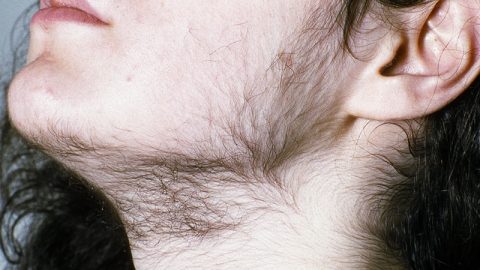Why is PCOS still difficult for doctors to understand?
Even after 80 years of discovering this syndrome, the doctors still don’t have any definitive test to diagnose it, cure it, or come to an agreement on what causes it.
Almost 18% of women have polycystic ovary syndrome (PCOS), accompanied by a set of symptoms like irregular periods, excess facial hair (hirsutism), acne, and infertility. If the diagnosis of the syndrome is not made at the right time, it can further lead to type 2 diabetes, heart problems, and a higher risk of endometrial cancer.
The symptoms of women with PCOS are quite peculiar, making the diagnosis very tough. Even the name of the syndrome is controversial — many women with PCOS have excess cysts in the enlarged ovaries, but some women with PCOS don’t.
Doctors consider the issue of the polycystic ovarian syndrome as an ovarian disorder. Inside a healthy ovary, one of several fluid-filled bags (or follicles) lumps-up, ruptures, and releases an egg in each menstrual cycle. For some women with PCOS, this procedure gets repetitively sporadic before the egg is released, leaving undeveloped follicles, or cysts, which is why it is named as “Polycystic” ovarian syndrome.
Doctors are still working on the forefront for the root cause and treatment for Polycystic ovarian syndrome.
This syndrome also tends to be accompanied by an elevated level of male hormones (androgens) and insulin resistance. Some doctors also believe that obesity is one of the primary causes of Polycystic ovarian syndrome. While other doctors are suspicious that obesity makes it worse for women whose inheritable factor raises their odds of getting polycystic ovary syndrome.
For the right diagnoses, a woman has to have any two or three signs and symptoms:
- Evidence of increased level male hormones (androgens)
- Irregular periods
- Polycystic ovaries
- Insulin resistance
Some doctors use ultrasound and blood tests, but many diagnose are based on the symptoms alone.
Why polycystic ovarian syndrome evades understanding?
The causes of Polycystic ovarian syndrome and why does it vary among patients is still not defined, though it’s likely that both environment and inheritances play a huge role. Doctors believe that heredity could be a major threat to incur thissyndrome. “The cause of Polycystic ovarian syndrome could be multifactorial.”
Lacking Good Diagnostic Criteria
A misperception exists on how to diagnose Polycystic ovarian syndrome accurately. At present, there are three different sets of diagnostic criteria used to assess women suspected of PCOS. Irregular menstrual cycle (irregularity of more than 40 days) or no periods and Clinical signs such as acne, hirsutism (excess hair), and blood tests showing high levels of male hormones and ovaries appearing polycystic on ultrasound are all indications of having PCOS.
Women with PCOS face lifetime health issues, how are women post-menopause to be diagnosed? A better diagnostic test or set of criteria is required.Not all women with PCOS are the same.
Symptoms vary widely. Some women with PCOS struggle for years with infertility, while others get pregnant immediately. Other women face insulin resistance and metabolic disorders and struggle to lose weight. While others see no weight gain. These differences in the symptoms make it difficult for the doctors to understand the reason and a definite cure for the syndrome.
In the treatment procedure of PCOS, doctors first put the women on birth control pills to regulate their periods. Regular menstruation is essential because the build-up of the uterine lining can lead to endometrial hyperplasia, manifested by heavy bleeding. Women with PCOS often take this as quite “ordinary,” but it can be a sign of endometrial cancer in rare cases. To spread awareness about this silent syndrome, the Metropolis group has taken initiative to support PCOS awareness to help the women fight and overcome PCOS.
Why women with PCOS often see multiple doctors before getting a Polycystic ovarian diagnosis?
The expert doctors say that polycystic ovarian syndrome has no cure; doctors only focus on treatment. Polycystic ovarian syndrome only has treatments depending on the particular symptoms that the patient with PCOS has. If a woman has irregular periods, the doctors can recommend hormonal birth control to regulate the hormonal levels and menstrual cycle. For insulin resistance, the doctors can prescribe drugs to help your body become more sensitive to insulin. Ointment and creams for skin issues like acne on the face because of the increased level of androgen. Doctors have medications to stimulate ovulation if a woman has trouble getting pregnant. The medicines are available for various symptoms, but there is no specific treatment for the syndrome. FDA has approved medications for the procedure of all the symptoms of Polycystic ovarian syndrome, and it has yet to approve a drug to cure the disorder.














